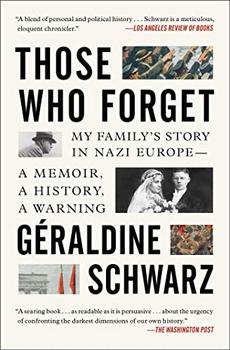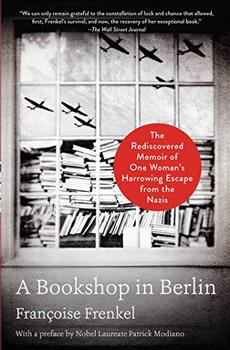Summary | Excerpt | Reviews | Beyond the book | Read-Alikes | Genres & Themes | Author Bio

The diary of a young woman, recording her and her neighbors' experiences as, for six weeks in 1945, Berlin fell to the Russian army.
An astonishing find - the landmark journal of a
woman living though the Russian occupation of Berlin - which has already earned
comparisons to diaries by Etty Hillesum and Victor Klemperer
For six weeks in 1945, as Berlin fell to the
Russian army, a young woman, alone in the city, kept a daily record of her and
her neighbors' experiences, determined to describe the common lot of millions.
Purged of all self-pity but with laser-sharp observation and bracing humor, the
anonymous author conjures up a ravaged apartment building and its little group
of residents struggling to get by in the rubble without food, heat, or water.
Clear-eyed and unsentimental, she depicts her fellow Berliners in all their
humanity as well as their cravenness, corrupted first by hunger and then by the
Russians. And with shocking and vivid detail, she tells of the shameful
indignities to which women in a conquered city are always subject: the mass rape
suffered by all, regardless of age or infirmity. Through this ordeal, she
maintains her resilience, decency, and fierce will to come through her city's
trial, until normalcy and safety return.
At once an essential record and a work of great literature, A Woman in Berlin
not only reveals a true heroine, sure to join other enduring figures of the
twentieth century, but also gives voice to the rarely heard victims of war: the
women.
When A Woman in Berlin was first published anonymously in German (five years after an English language version was published in 1954) it was greeted with disgust by German audiences and quickly went out of print. The author was so shaken by the response that she would not allow her diary to be republished again until after her death. In 2003 it was republished in Germany to critical acclaim and more controversy, but also to a great deal more recognition, empathy and understanding. A retranslation was published in English in hardcover last year, and this month in paperback...continued
Full Review
(484 words)
This review is available to non-members for a limited time. For full access,
become a member today.
(Reviewed by BookBrowse Review Team).
In ancient times rape was seen as a reward to the victors; for example, there are a number of references in the Old Testament/Hebrew Scriptures to acts of mass rape by conquerors, and plenty in Roman and Greek history.
In modern times mass rape has been increasingly used as a premeditated terror tactic by invading armies. According to ReligiousTolerance.org the Germans used rape as a tactic of terror as they marched through Belgium in World War I and gang rape was part of the orchestrated riots of Kristallnacht that marked the beginning of the Nazi campaigns against the Jews in November 1938 (incidentally, the British historian Martin Gilbert, has just published a very well reviewed book about Kristallnacht). The Russians used it as a ...
This "beyond the book" feature is available to non-members for a limited time. Join today for full access.

If you liked A Woman In Berlin, try these:

by Géraldine Schwarz
Published 2022
Those Who Forget, published to international awards and acclaim, is journalist Géraldine Schwarz's riveting account of her German and French grandparents' lives during World War II, an in-depth history of Europe's post-war reckoning with fascism, and an urgent appeal to remember as a defense against today's rise of far-right nationalism.

by Francoise Frenkel
Published 2020
"A beautiful and important book" (The Independent) in the tradition of rediscovered works like Suite Française and The Nazi Officer's Wife, the prize-winning memoir of a fearless Jewish bookseller on a harrowing fight for survival across Nazi-occupied Europe.